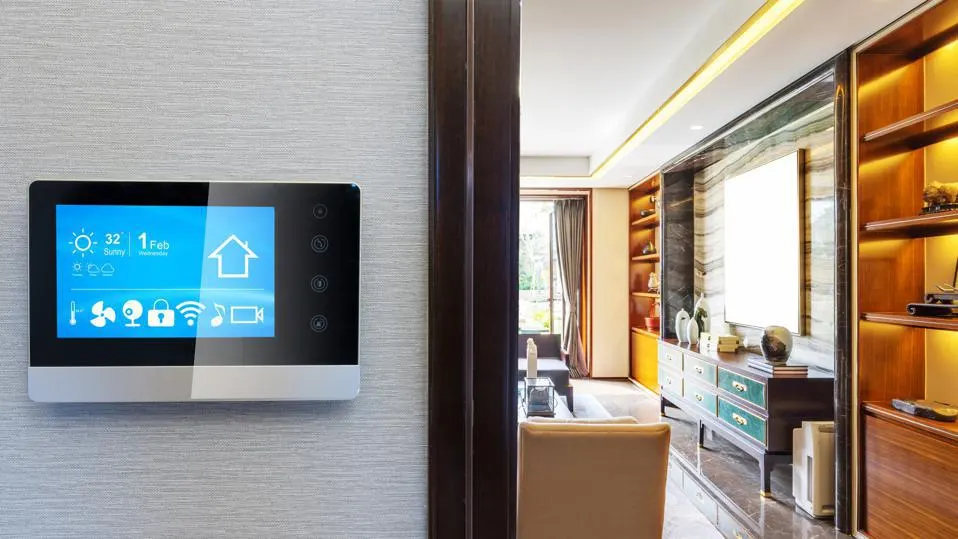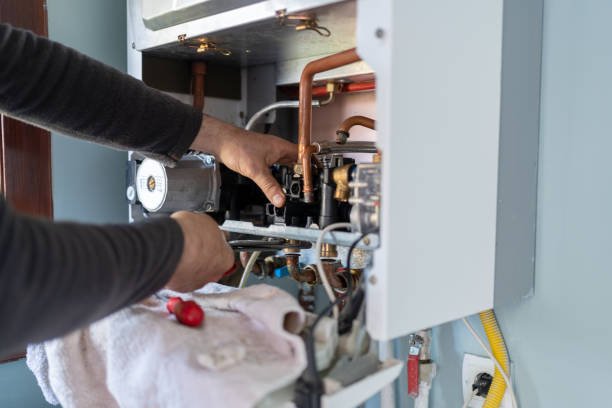Smart homes are designed to simplify our daily tasks, improve security, and make our living spaces more energy-efficient. For homeowners looking to enhance their lifestyle and make life easier, smart home automation offers numerous benefits. This blog will take a closer look at the key advantages of smart home automation and why it’s becoming an essential feature for homes today.
What Is Smart Home Automation?
Before diving into the benefits, let’s first understand what smart homes automation is. A smart home is a residence equipped with devices that can be controlled remotely, typically through a smartphone or other internet-connected device. These devices include smart thermostats, lighting systems, security cameras, door locks, and even kitchen appliances. The goal of smart home automation is to give homeowners more control over their living spaces, making them safer, more convenient, and more efficient.
How Smart Home Automation Works
Smart home automation works by connecting various devices to a central hub, which is controlled through an app or voice-activated assistant like Amazon Alexa or Google Assistant. The hub communicates with the devices via Wi-Fi, Bluetooth, or other wireless technologies, allowing homeowners to monitor and control their home remotely. For example, you can turn off lights, lock doors, or adjust the thermostat even when you’re not at home.
The Benefits of Smart Home Automation for Modern Homeowners
There are many reasons why smart home automation is becoming a popular choice among homeowners. Below are the main benefits that modern homeowners can enjoy by integrating smart technology into their homes.
1. Increased Convenience
One of the most significant benefits of smart home automation is the level of convenience it offers. Everyday tasks that would usually take time and effort can now be done with a simple tap on your phone or a voice command. From turning on the lights to adjusting the temperature, smart home automation makes managing your home effortless.
Automated Daily Tasks
With smart devices, homeowners can automate daily tasks such as turning lights on and off, adjusting thermostats, or even brewing coffee. Imagine waking up to a home where the lights gently brighten, the temperature is already adjusted to your liking, and your coffee is brewed and waiting for you in the kitchen. This convenience makes daily routines smoother and more enjoyable.
Remote Access from Anywhere
Smart home technology also allows you to control your home from anywhere in the world. Whether you’re at work, on vacation, or simply out running errands, you can check in on your home’s security system, turn off appliances you forgot to switch off, or adjust the thermostat to save energy. This remote access provides added peace of mind and convenience.
2. Improved Energy Efficiency
Smart home automation can significantly reduce energy consumption, making your home more environmentally friendly and lowering your utility bills. Many smart devices are designed to optimize energy use by automatically adjusting based on your daily habits.
Smart Thermostats for Efficient Heating and Cooling
A smart thermostat learns your routine and adjusts the temperature accordingly. If you’re away from home, it will reduce heating or cooling to save energy. You can also control the thermostat remotely to ensure your home is at the perfect temperature when you return. This not only makes your home more comfortable but also reduces energy waste.
Energy-Efficient Lighting Systems
Smart lighting systems allow you to set timers or use motion sensors, so lights are only on when they are needed. You can also control them remotely to ensure no lights are left on unnecessarily. These small changes can add up, helping you save on energy bills while being kinder to the environment.
3. Enhanced Home Security
Security is a top priority for homeowners, and smart home automation offers advanced security features that provide peace of mind. Smart security systems allow you to monitor your home in real-time, receive instant alerts, and even control door locks remotely.
Smart Cameras and Doorbell Systems
Smart security cameras and video doorbells let you monitor who is coming and going from your home at any time. These systems offer real-time video feeds that can be accessed from your phone, allowing you to keep an eye on your property even when you’re far away. Many of these systems also feature motion detection, alerting you immediately if there is any unusual activity.
Automated Locks and Alarm Systems
Smart locks can be controlled remotely, allowing you to lock and unlock doors from your phone. This is particularly helpful if you forget to lock the door before leaving or need to let someone into your home while you’re away. Smart alarm systems can also be automated to arm or disarm at set times, ensuring your home is always secure.
4. Better Control Over Household Devices
Smart home automation doesn’t just help with security and energy efficiency—it also gives you better control over all your household devices. With the touch of a button or a simple voice command, you can manage your appliances, entertainment systems, and even household chores.
Voice-Activated Assistants
One of the most convenient aspects of smart home automation is the ability to control devices using voice commands. Devices like Amazon Alexa, Google Assistant, and Apple Siri can be connected to your smart home system, allowing you to control lights, play music, adjust the thermostat, or even ask for weather updates—all without lifting a finger.
Integration with Appliances
Many modern kitchen and household appliances, such as ovens, washing machines, and refrigerators, can be integrated into your smart home system. This allows you to monitor and control them from your phone. For example, you can preheat the oven on your way home or check if you left the fridge door open.
5. Increased Property Value
Smart home automation can also increase the value of your home. As more buyers look for modern, tech-savvy homes, having a smart system in place can make your property more attractive to potential buyers. Smart home features are seen as an investment in the future, making homes more appealing in a competitive market.

Appeal to Future Buyers
Homes equipped with smart technology are increasingly sought after by younger buyers who value convenience and energy efficiency. By installing smart devices, you can future-proof your home and increase its resale value.
Long-Term Savings
While there may be an initial investment in setting up a smart home system, the long-term savings on energy bills and the added convenience make it a worthwhile investment. Plus, the increased property value can offer a return on investment when it’s time to sell your home.
6. Customization and Personalization
Another major advantage of smart home automation is the ability to customize and personalize your home to fit your specific needs. Whether it’s adjusting lighting to create the perfect ambiance or setting up a morning routine that fits your schedule, smart home systems allow you to tailor your environment to your preferences.
Personalized Settings for Comfort
Smart systems can learn your preferences over time, adjusting settings automatically to create the ideal home environment. Whether it’s turning on soft lighting when you arrive home or adjusting the thermostat based on the weather, your smart home can be programmed to enhance your comfort.
Conclusion
Smart home automation offers a wide range of benefits for modern homeowners, from increased convenience and energy savings to improved security and better control over household devices. Whether you’re looking to make your life easier, reduce your environmental impact, or enhance the security of your home, smart technology is a valuable addition. As technology continues to evolve, smart home systems will become even more advanced, making everyday living more efficient and enjoyable for homeowners everywhere.
Note:- To read more articles visit on nytimer.



